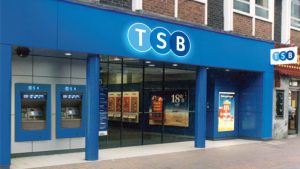
 Over the last few years we’ve experienced Covid-19, bank branches closing, TSB, HSBC, RBS and other banks have had sudden and unexpected outages. Here at AdvanceCU we have not had too many significant issues, but it can happen and we have plans in place just in case.
Over the last few years we’ve experienced Covid-19, bank branches closing, TSB, HSBC, RBS and other banks have had sudden and unexpected outages. Here at AdvanceCU we have not had too many significant issues, but it can happen and we have plans in place just in case.
Hopefully you haven’t been too badly affected by these problems, but it is a reminder that these things can occur and can have big consequences for many people. Many things can make your money wobble; unexpected bills, a sudden loss of income or a change in family circumstances.
So how can you get prepared just in case you aren’t able to access your bank account or some other event occurs? This is what’s called Financial Resilience. Boosting your financial resilience is the best way to deal with whatever comes your way.
Our top tips to be prepared just in case
Two bank accounts – having a second bank account with another bank. Keep enough money to pay the bills for a few days. We know that some of our members use their Engage Account as their second account. See MoneySavingExpert guide to bank accounts.
Save Regularly – AdvanceCU encourages everyone to save regularly; just £3 weekly or £12 monthly will build up a pot of about £150 in 12 months. This could come in really handy if you aren’t able to access your main bank account. And we pay a dividend on savings, 0.5% in 2020 – more than most high street banks.
Internet banking – set up internet banking access to your bank accounts, most banks have smartphone apps to make it quick and easy to access your money 24/7. Banks are closing more and more branches and trying to contact them by phone can be impossible-particularly if they’ve had a problem of some sort. Never reveal or share your passwords or PIN with anyone, see Getsafeonline tips for internet banking security.
Emergency credit card – ask for a small credit limit, then keep it in a draw. Set up a direct debit to pay the bill in full so you aren’t charged interest. Don’t use it! Unless you really have to make purchases and can’t access your main account. Most credit cards are very expensive to withdraw cash from an ATM, but purchases are free provided you pay the bill off in full. This should be enough time for your main bank account to be accessible again.
Contact creditors – if you know you won’t be able to pay the mortgage, rent, or other bills on time it is always best to contact them and tell them about the problem and explain when you will be able to pay. They always appreciate being informed and you can ask if they will waive any fees or accrued interest until you make the payment. Remember that missed payments can affect your credit history.
Borrow affordably – loans, credit cards, overdrafts and other debts can soon swallow up a big chunk of your income. If you suddenly aren’t able to make the payments this can easily spiral into unaffordable debt. Only borrowing when you need to, for a specific purpose and at an affordable rate can help ensure that borrowing doesn’t become a burden. Swapping to a credit union loan could help cut the costs of borrowing and fees elsewhere.
Be fraud aware – fraudsters can target people when there is disruption to banking services. Never give your bank account details or passwords out over the phone, or click on links in emails. Barclays Bank Digital Wings has a useful online guide to avoiding online scams.

Recent Comments